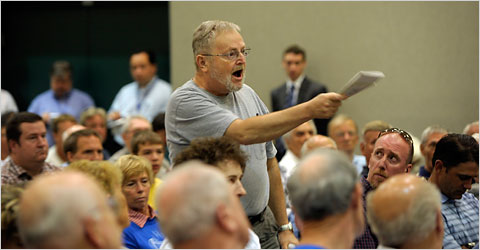COMMENT: Digital democracy and the spark of a revolution in Rossland
How can the public give their input into the budget, as Coun. Fisher suggested, while avoiding the potential for “chaos” that Coun. Spearn feared?
I have a suggestion for council: swing a deal with ThoughtStream for a software license for the city, and hire one of their facilitators.
Right now, the idea of “engaging” the community is mostly just rhetoric—a rarely realized goal because visioning sessions, design charettes, council meetings, and public hearings rarely draw many people.
Of those who go to these meetings, fewer still actually voice an opinion. And even then, how can we judge how widely an opinion is held?
To top it all off, we want more than just “public engagement.” We want council to actively learn from the collective wisdom of Rossland’s citizens.
That’s what ThoughtStream was designed to do, and it requires no greater skill than it takes to send an email. We explain this simple but powerful, award-winning software in a separate article this week.
The ThoughtStream innovation—born from the mind of Rossland’s own Jim Firstbrook—is currently streamlined to help school districts make difficult decisions based on public input, but it is just as well equipped to handle a municipality of 3500 residents.
While very few people make the effort to go to a meeting, people are much more likely to voice an opinion if it’s as simple as writing a few thoughts in an email. Firstbrook reports much higher response rates than are typical for surveys.
It could be a trial at first, with a small amount of money set aside for one set of questions. Afterward, Rosslanders could take stock of whether the exercise was useful.
In an email to all residents, for example, ThoughtStream could package the following three questions (along with simplified but comprehensive budget information to help inform the residents’ comments):
- What items stand out for you as “good value” in the budget?
- What items stand out for you as “bad value” in the budget?
- What other ideas do you have about how Rossland should spend its money?
Clicking a link in the email would take a resident to a ThoughtStream webpage to enter their ideas and answers, as many as they pleased. For example, I might write:
- “The Miners’ Hall is worth every cent,” as one idea under question one,
- “Bylaw enforcement costs more than it should for the service we get,” under question two,
- and “Composting yard waste at home should be encouraged to reduce spring and fall clean-up costs,” under question three.
The facilitator uses ThoughtStream to take all the responses and lump similar comments together, resulting in a list of all the distinct comments to each question.
A second email with the condensed lists of responses is sent to all residents. And each resident also gets a handful of stars to award to their favourite comments—it’s a form of voting.
Finally, all the votes from all the respondents can be added up to give instant community priorities on budget pros, cons, and ideas in general to aid council in their difficult budget decisions.
The priorities this process highlights will have been built from the ground up, entirely from community input, with none of the preconceptions implicit in a survey or referendum.
I feel confident that tapping the wisdom of the whole community this way could quickly identify cuts to the budget (or new, value-adding expenditures) that would more than pay for ThoughtStream’s educational-cum-democratic services.
An important aside: many people, especially the older generation, find the Internet difficult to use. The potential to miss their input creates a big problem known as “sample bias.”
To help counter it, the city would do well to employ a student (i.e. someone whose labour is inexpensive) to type in the handwritten responses the city would actively solicit and hopefully receive from those who aren’t online.
But don’t let this obstacle blind us to the vision!
Why don’t we blast open a completely new level of public involvement in policy decisions?
Why not put Rossland on the map as the place where a revolution in democracy took hold?
Who’s up for a brisk, revitalizing plunge into the future?


























